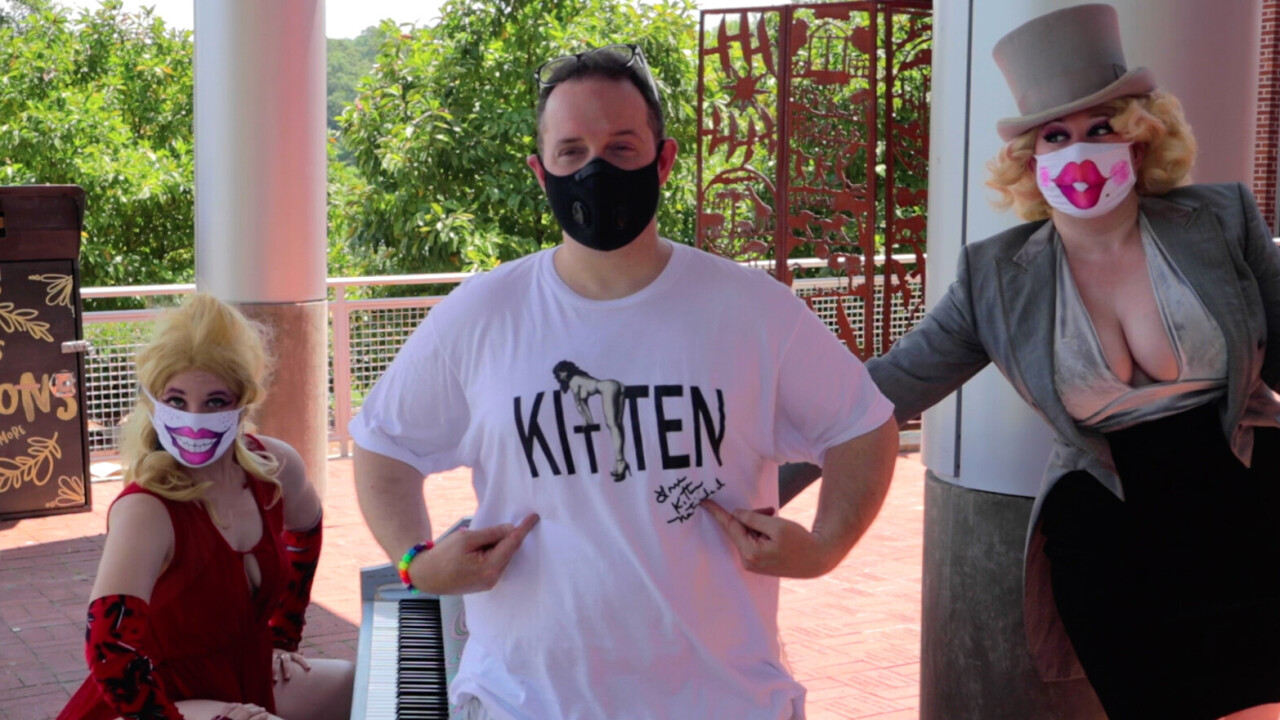
Somewhere between the first Transformers movie from Michael Bay earning $700M domestically and YouTube star Jake Paul getting nearly 14 million views for a video of him fighting another influencer we lost our way.
Don’t get me wrong, I love the first Transformers movie and I totally get Jake Paul’s appeal to a certain demographic. There’s room in the world for both of these things. What they represent isn’t new; anti-intellectualism has always been mainstream entertainment’s lynchpin (see: 1980s action movies, Laurel and Hardy, Jackass, and Borat).
Unfortunately the emergence of big screen special effects for the independent film maker and the popularity of live-streaming stream-of-consciousness antics as an alternative to narrative cinematography has resulted in DIY filmmakers becoming an endangered species.
The COVID-19 pandemic, however, has disrupted the status quo in the entertainment world and filmmakers with a DIY spirit are suddenly back on the rise.
We’ve seen Hollywood fold its hand and ask to be dealt out of the pandemic. Sure, a few projects here and there got pushed through, but for the most part Tinsel Town isn’t open for business. It’s every movie for itself until further notice.
And YouTube hasn’t exactly swept in to fill the gap. First, it canceled the best thing it had going in the excellent Karate Kid reboot series Cobra Kai (thankfully Netflix is picking it up). And secondly, what could the YouTube world do during a pandemic it wasn’t already doing? It’s not like the platform isn’t already flooded with people stuck inside using smart phones to make videos.
The inherit problem is that venerable old Hollywood is the status quo. And YouTube, well, it’s not the fresh upstart with big ideas from little people it once was. It’s an established platform where a lot of creatives exist in the shadow of big players who know how to work the algorithm. In either world you’re typically beholden to doing things a certain way if you want to be successful.
But the status quo no longer exists, it’s been put on indefinite hiatus. If you try to make a film the normal way – with talent and crew crammed into a set – your project could forever be tainted as reckless and dangerous for risking people’s lives during a pandemic. Worse, people could die.
Enter quarantine cinema. This isn’t just any project released during the pandemic, we’re talking about entertainment films and videos created while stringently observing proper CDC guidelines for social-distancing, mask wear, and hand washing. And that means on-screen talent too.
I first noticed quarantine cinema on Netflix’s Tiger King docuseries. Shortly after it was released the producers added an additional episode featuring Joel McHale interviewing various members of the cast. The entire episode used remote filming techniques (everyone on screen filmed themselves alone).
What I found most interesting was that Netflix didn’t try to put anyone on a set, but instead filmed them all in what appeared to be their own homes. In that situation, we can assume that Netflix sent all the cast members a “kit” full of relatively inexpensive streaming gear they used to make the interviews uniform and then it just had to edit and post the footage. Not bad for an episode of what might turn out to be the biggest TV show of 2020.
Other filmmakers are putting their casts together in new and innovative ways. TNW spoke with independent filmmaker Andrew Shearer, the founder of DIY film studio Gonzorriffic. He’d begun shooting a project right when the quarantine broke out earlier this year and says he had to do a complete rewrite in order to make it work in the new paradigm.
[Read: Space Boobs in Space is the best thing on Prime Video]
Shearer says COVID-19 has “changed everything forever” when it comes to the film industry. But not all of it’s bad. Part of his rewrites included the addition of talent he says he’d never have worked with if he didn’t have to consider remote filming.
He continues:
It’s not just enabling me to finish my project, but it’s also enabling us to see what’s possible. The act of including anyone, being able to work with people I never thought I’d be able, is empowering.
The pandemic hasn’t stopped Shearer from working with local talent in-person, it’s just forced him to reconsider what his audience wants. For his latest film – a soon-to-be-released collection of short videos connected by a narrative thread called Arreola Jones and the Home Video Vixens – he added masks to the film’s characters so the actresses playing them could perform together (while maintaining proper social distance) for in-person shoots.
Safest video vixens @CoquettedeJour and @DeeFlowered filming around Athens today pic.twitter.com/9aQyI7ueCa
— gOnZoRiFFiC (@gonzoriffic) July 19, 2020
Gonzorrific adheres to what Shearer calls a “punk rock” mentality:
We’re DIY to the bone. We’ve used iPhones, DSLRs, and whatever we can get our hands on. I’m not opposed to shooting with a GoPro. We’ve shot on VHS. It’s more about having fun and working with talented people.
And while Gonzorrific’s low-budget brand of cinema might not be for everyone (it specifically avoids what Shearer calls catering to “shitheads,” and instead creates titillating “fem-positive” movies that don’t focus on the heterosexual male gaze), they’re a prime example of the kind of creative endeavor that can succeed when “normal” stops existing.
Best of all, anyone can create quarantine cinema. There was a time when being an independent filmmaker meant begging for, borrowing, or stealing a camera and then doing whatever it took to use as little film as possible. Every shot mattered, every edit could be gut-wrenching, and reshoots were enough to give a producer apoplexy.
In those days, cinematic victory was handed to the wealthy or the clever. Robert Rodriguez, for example, famously turned a handful of everyday items and a cheap camera into the legendary film El Mariachi, which was lauded as an independent film landmark due to the fact it only cost around $7,000 to make and released to critical acclaim.
The rise of high quality camera phones and social media put the squeeze on independent filmmakers and, ultimately, even the streaming services abandoned the little companies like Gonzoriffic. Until the pandemic hit, it looked like B-movies and DIY underground cinema was dying off. But now we’re hit with a dearth of entertainment as a significant amount of film, television, music, and video game projects have been put on hold or canceled.
While Hollywood figures out how to reboot and YouTube tries to reckon its format against the fact that we’re all stuck inside now, DIY filmmakers and clever independent artists find themselves in perfect position to do what they do best: create something nobody’s ever seen before in a way nobody’s ever had to do it.
As Shearer told us:
Technology has always been our friend. But now, it’s more than just having a way to film a project. It’s about getting out of bed. Having something to look forward to is a blessing in itself. And what we do is unique and fun because it’s made by people who are unique and having fun.
There’s no two ways about it, the quarantine sucks and COVID-19 is the villain in all of our stories right now. But when life hands you plague lemons, you make plague lemonade. If Hollywood can take some cues from DIY punk rockers like Andrew Shearer we might see a return to the kind of innovative creativity that brought us films such as Pi, Saw, and Clerks into the mainstream.
More importantly, we might see a resurgence of the kind of underground cinema that’s severely lacking in the streaming world where Netflix, Prime Video, and Hulu are the ultimate gatekeepers. Legends like John Waters and Lloyd Kaufman would be hard-pressed to get their early work on any of the major streaming services if they didn’t have decades of receipts to show big tech the value of their work.
It’s time for a return to celebrating the biggest, boldest creative minds in film. We need more “B-movie and proud!” films on the streaming networks and, eventually, the big screen because there’s no substitute for a cult classic created by a starving artist.
I wouldn’t want to live in a world where Attack of The Killer Tomatoes died on the vine or Eraserhead never left its mark. Here’s hoping the post-pandemic entertainment world learns something from the DIY spirit behind today’s quarantine cinema.
Also, consider this my formal petition for Gonzoriffic to make Space Boobs in Space Part 2. It’s the quarantine movie we deserve and need.
Get the TNW newsletter
Get the most important tech news in your inbox each week.

